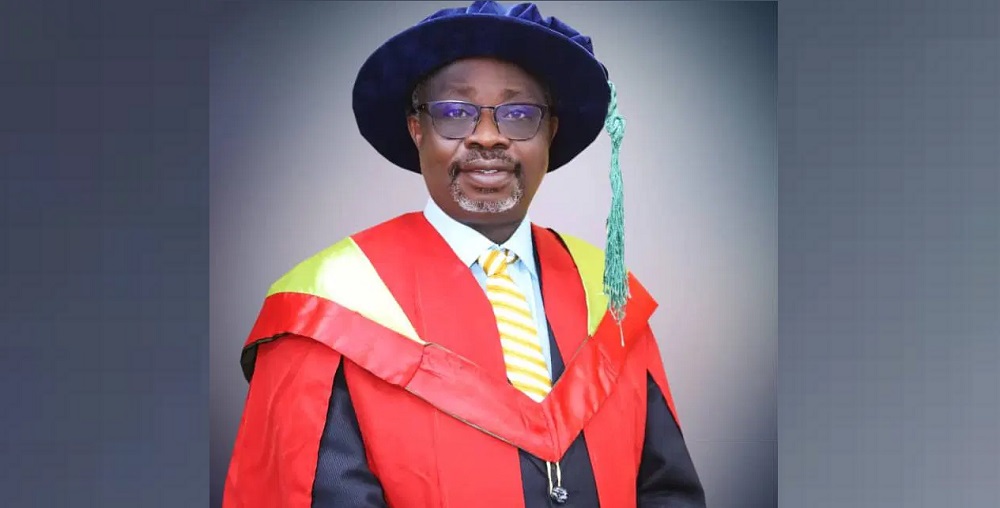News
Nigerian varsities working in shadows of death – Omole

The Pro-chancellor and Chairman of the Governing Council, Ladoke Akintola University of Technology (LAUTECH), Ogbomoso, Professor Ayodeji Omole on Thursday said that the Nigerian University is under siege and currently “working in the shadows of death”.
He maintained that the university system has been captured and held hostage by many government policies especially since the advent of the so called ‘civil rule’.
Professor Omole made these assertions while delivering the 561 inaugural lecture of the university of Ibadan, entitled “working in the shadows of death”.
A former ASUU chairman, Professor Omole stated unless something urgent is done to stop government attacks on the Nigeria’s educational system, the system will die faster than anticipated
“More than ever before, the Nigeria University system is under siege and therefore ‘Working in the shadows of death. If nothing drastic is done to stop the various attacks from government and its agencies, the system will die faster than anticipated. The University system is captured and has been held hostage by many government policies, especially since the advent of the so called ‘civil rule’”.
He took a swipe at various civilian administrations who he said foisted anti-intellectual policies on the education system in the country.
According to the Professor of Forest Engineering, “Treasury Single Account (TSA) and Integrated Personnel and Payroll Information System (IPPIS). IPPIS is a mismatch with university work structure. It is incompatible with the academic calendar, and a clear violation of the University Act.
Therefore, it is illegal. Only in Nigeria is the data-base of scholars surrendered to foreign agencies in the name of cutting cost. The effects of which are threatening the very existence of the University system in Nigeria today, because it is now impossible for Universities to recruit even cleaners.”
According to the University don, “the proposed imposition of Core Curriculum Minimum Academic Standard (CCMAS) by the National Universities Commission (NUC) is another policy that will kill Nigerian Universities, faster than expected”.
While expressing sadness that the university of ibadan senate also caved in from its stance on the CCMAS introduction, Professor Omole lamented that the rigid standardization will definitely limit universities’ ability to innovate and design programmes to meet societal needs; because local content and flavour are ignored.
As a former ASUU Chairman at the University of Ibadan, Omole who appreciated the efforts of the Academic Staff Union of Universities (ASUU) and its quest for enhancing qualitative public education for children of the masses in Nigeria noted that “every financial gain the university system has been able to make is as a result of the struggles of ASUU”
He challenged Nigerian academic to “criticize policies that are inimical to national development” saying that “scholars worthy of the description should be vocal in their resistance to foreign exploitation, through the imposition of neo-liberal policies”.
To ensure sustainable development, Professor Omole harped on the need “for government and other stakeholders to ensure fair and adequate compensation for all workers, fostering a motivated workforce that is fully engaged in the pursuit of national progress”.
“Slave wages severely undermine the commitment of workers to national development and have broad, damaging effects on a country’s economic, social, and political fabric. Under-funding in Nigerian universities has led to a range of problems that affect the quality of education, research, and overall institutional performance.
This has manifested in the form of deterioration of infrastructure, poor facilities, brain drain/loss of talent, labour/student unrest, erosion of university autonomy, low morale among staff, decline in global ranking and reputation. These affect productivity, commitment, and willingness to engage in advanced research or innovative teaching methods.
In summary, the under-funding of Nigerian universities is a significant barrier to the advancement of education, research, and national development. Addressing these issues requires increased investment in higher education, better financial management, and strategic policies that prioritize the long-term sustainability and improvement of the university system.
Poor remuneration in Nigerian universities has far-reaching consequences for the future of the university system, affecting its ability to deliver quality education, retain talent, and contribute to national development.”
News
2025 IWD: NAWOJ-FCT Calls for Urgent Action on Gender Equality, Rural Women Empowerment

News
IWD 2025: Comrade Ike Celebrates Resilience, Achievement Of Women In Leadership

News
Bauchi 2027: Senator Ningi declares interest in governorship race

The Senator representing Bauchi Central Senatorial District of Bauchi State, Ahmed Abdul Ningi, has expressed his intention to contest for the gubernatorial seat under the main opposition party, the Peoples Democratic Party (PDP), in Bauchi State come 2027.
Abdul Ahmed Ningi made the declaration on Friday during a meeting with party stakeholders from Ganjuwa LGA, one of the LGAs that make up the Bauchi Central Senatorial District.
The Senator told the gathering that he is ready to answer the numerous calls for him to run for the gubernatorial seat under the PDP, a party of which he has been a staunch member since its formation.
However, he emphasized that he is not in the race to seek fame but rather to continue serving the people of the state in a different capacity and with greater responsibility.
According to him, “I am not in the gubernatorial race to seek fame or increase my popularity—no, I have already made a name for myself. I have risen to the position of Deputy Senate Leader; what more do I need in terms of name and popularity?”
Abdul Ahmed Ningi further stated, “I am a founding member of the PDP right from its inception. I have never left the party, and I will not do so. We are here to build the party and ensure that it retains power in Bauchi State and reclaims the country in 2027.”
He urged PDP stakeholders to prepare for the reality of 2027 by ensuring that the gubernatorial ticket goes to the right candidate—someone with the political strength, capability, and capacity to win the election and consolidate the party’s gains.
The stakeholders commended the Senator for his contributions to the development of the state since his entry into politics, regardless of the specific area he represents.
They all assured him that, when the time comes, they will take the necessary steps to ensure that only the best candidate, capable of winning elections, is selected.
-

 News5 hours ago
News5 hours agoArrest Asari now, group tells FG over his plan to destroy oil installations
-

 News5 hours ago
News5 hours agoOba of Benin suspends 67 Dukes
-

 Foreign5 hours ago
Foreign5 hours agoTrump threatens Russia with sanctions after strikes on Ukraine
-

 News18 hours ago
News18 hours agoTotal darkness in major Nigerian cities as National Grid collapses again
-

 News6 hours ago
News6 hours agoTinubu appoints six fresh medical directors
-

 News19 hours ago
News19 hours agoSEE Black Market Exchange Rate For March 7, 2025
-

 News5 hours ago
News5 hours ago“We’re not in a banana republic, Ex-Whip, Owie slams Senate
-

 Opinion19 hours ago
Opinion19 hours agoOF AKPABIO, NATASHA, AND SENATE’S “CIRCUS SHOW”





